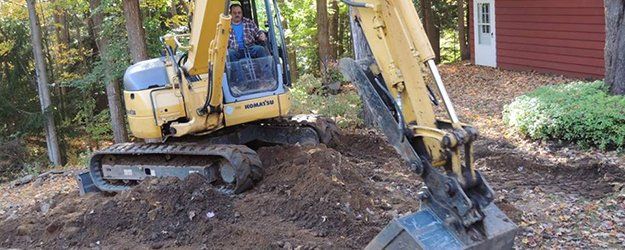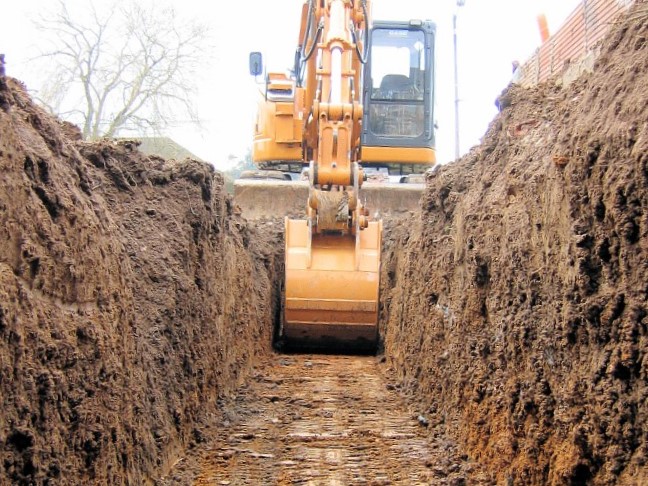Comprehensive Excavation Strategies: Understanding the Principles for Success
The cautious preparation, exact implementation, and precise focus to information needed in excavation jobs require an extensive strategy that incorporates different fundamental facets. The true mastery exists not merely in comprehending these fundamentals however in seamlessly incorporating them to navigate the intricacies of excavation jobs with skill.
Understanding Excavation Job Planning

Effective excavation jobs are improved the foundation of careful and thorough planning. The first phase of any excavation task is the preparation phase, where vital choices are made that can substantially influence the end result of the task. Throughout this stage, it is vital to collect all pertinent details regarding the site, including topographical surveys, dirt composition, and any possible risks that may exist. Recognizing the task spending plan, range, and timeline restrictions is crucial for producing a comprehensive excavation plan that guarantees the task's success.
One key aspect of excavation task preparation is the growth of a detailed timeline that describes the sequence of turning points, tasks, and due dates. By very carefully thinking about all these elements throughout the preparation phase, excavation jobs can be performed efficiently and efficiently, leading to successful outcomes - dump truck companies in ohio.
Dirt Evaluation and Site Assessment
Conducting extensive soil evaluation and website examination is an essential action in the prep work phase of any kind of excavation task. Dirt analysis includes figuring out the make-up, structure, and residential properties of the soil at the excavation site. This information is crucial for understanding the soil's bearing capability, moisture material, and potential for erosion, which are key consider establishing the excavation techniques and equipment needed for the job.
Website assessment goes beyond dirt analysis and includes a wider assessment of the general site problems. This examination consists of identifying any type of prospective threats, such as underground utilities, environmental issues, or unpredictable terrain, that might impact the excavation process. By extensively assessing the website, project supervisors can create effective excavation techniques that focus on security, efficiency, and ecological security.
Making use of advanced modern technologies like ground-penetrating radar, soil tasting, and drone studies can improve the precision and efficiency of soil evaluation and site evaluation. Spending time and resources in these preliminary actions can inevitably save time and avoid pricey delays or issues throughout the excavation procedure.
Tools Option and Utilization
Effective excavation jobs depend greatly on calculated equipment choice and utilization to make certain ideal performance and performance. Selecting the ideal equipment for the job is critical in taking full advantage of performance and reducing downtime. Factors such as the kind of soil, deepness of excavation, and task range play a considerable duty in determining one of the most appropriate devices for the task handy.

Along with selecting the ideal tools, appropriate utilization is vital to task success. Operators must be trained to handle the equipment safely and efficiently - dump truck companies in ohio. Routine maintenance checks and prompt repair work aid protect against malfunctions and make certain consistent performance throughout the job
Security Measures and Regulations Compliance
In the world of excavation tasks, prioritizing safety measures and compliance with guidelines is critical to making sure a lawfully sound and safe operational environment. Precaution incorporate a variety of methods, including carrying out comprehensive site assessments, executing appropriate signs and barriers, and offering ample safety and security training for all workers associated with the excavation process. Adherence to policies, such as OSHA demands in the United States, ensures that the excavation project fulfills the essential standards to protect workers, onlookers, and the surrounding setting.

Monitoring Development and Adjusting Strategies
Exactly how can forecast supervisors successfully track the advancement of excavation jobs and adapt their methods appropriately to optimize end results? Surveillance development is crucial for making sure that excavation projects remain on track and meet target dates. view it now Task supervisors can use different tools and techniques to track progress, such as everyday progression records, regular site evaluations, and advanced surveillance technologies like drones and general practitioners tracking systems. By constantly keeping an eye on the project's development, supervisors can recognize any prospective delays or Homepage issues at an early stage and take aggressive measures to resolve them.

Final Thought
Finally, mastering the basics of comprehensive excavation methods is necessary for the success of any project. By understanding task preparation, examining dirt and website conditions, choosing suitable tools, adhering to security policies, and keeping an eye on progression, job managers can ensure a efficient and smooth excavation procedure. Executing these approaches will certainly bring about effective results and reduce possible threats or obstacles throughout the excavation task.
The first phase of any type of excavation project is the planning phase, where critical decisions are made that can considerably affect the result of the task. Recognizing the project budget, timeline, and range restraints is important for creating a thorough excavation strategy that makes certain the task's success.
Just how can project supervisors successfully track the advancement of excavation projects and adapt page their strategies accordingly to maximize results? By closely keeping track of progress and being eager to adjust methods, task managers can enhance the overall success of excavation projects.
By recognizing task preparation, analyzing dirt and website conditions, choosing proper devices, conforming with safety and security laws, and monitoring development, job managers can guarantee a smooth and reliable excavation process.
Comments on “Expert Septic Ohio - Trusted Septic Tank Professionals in Ohio”